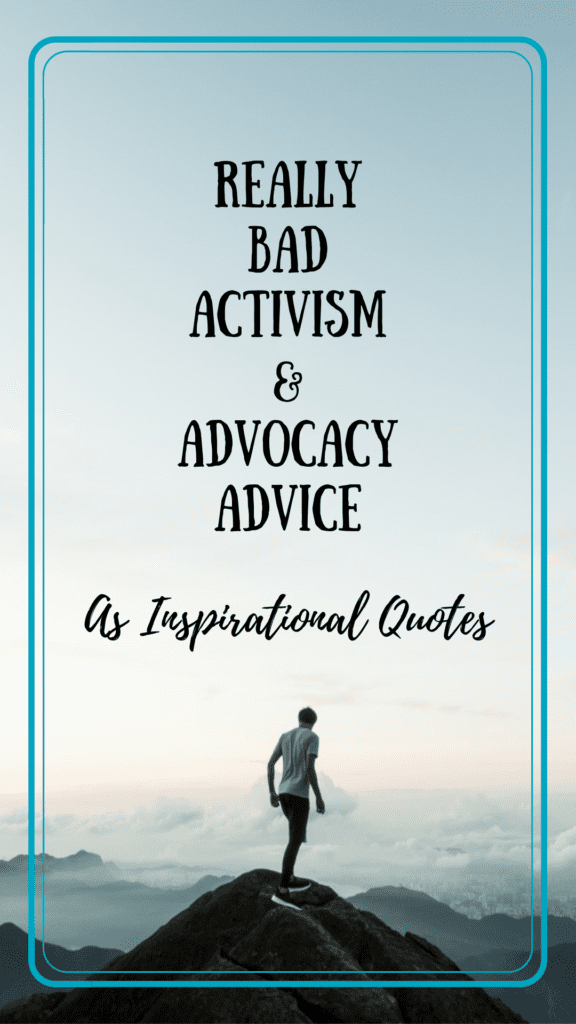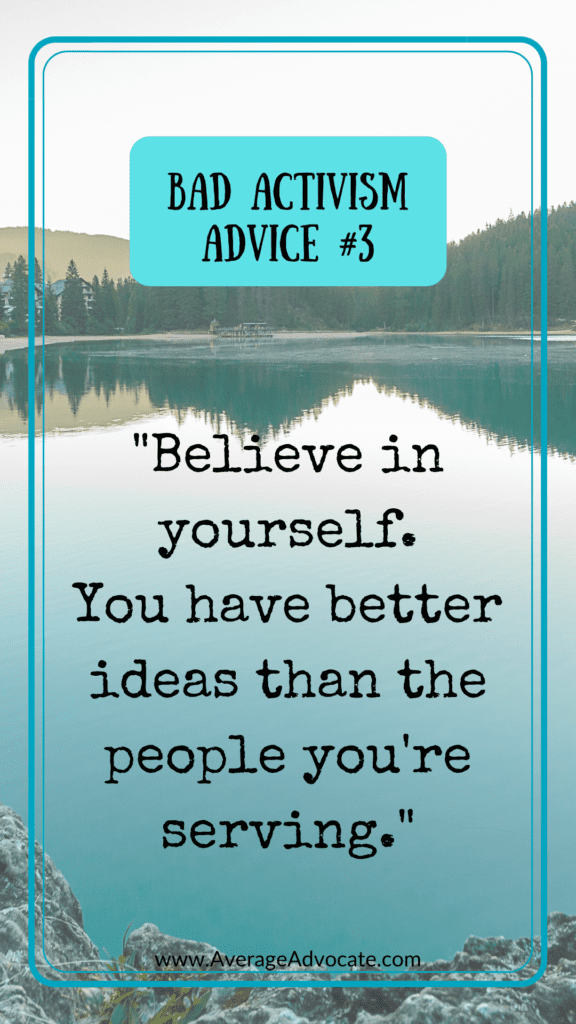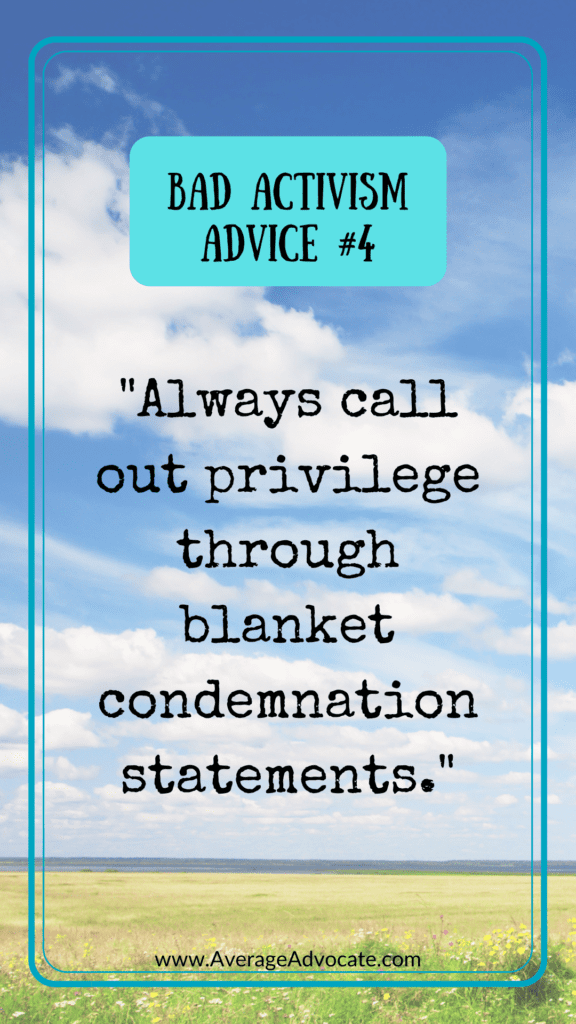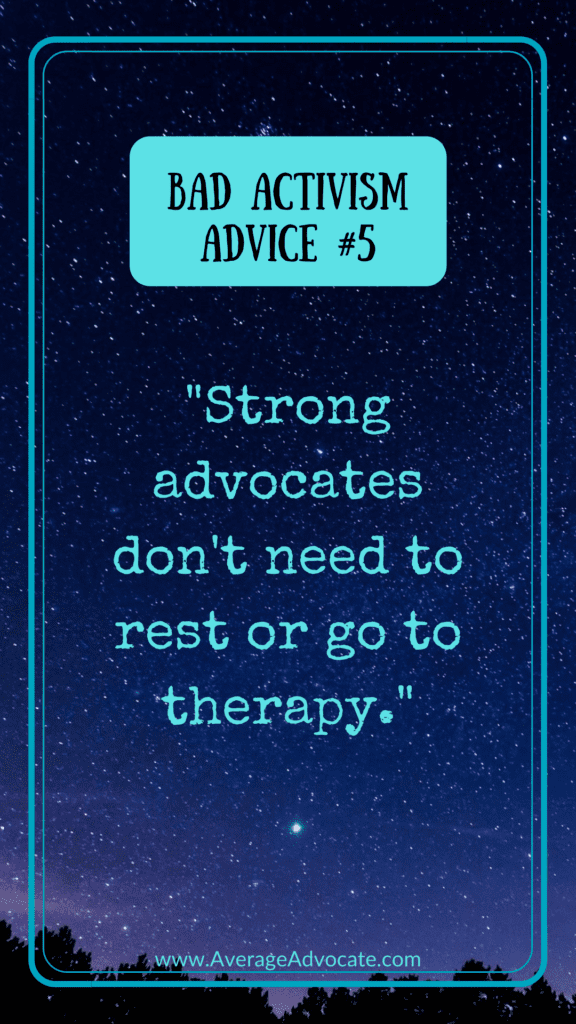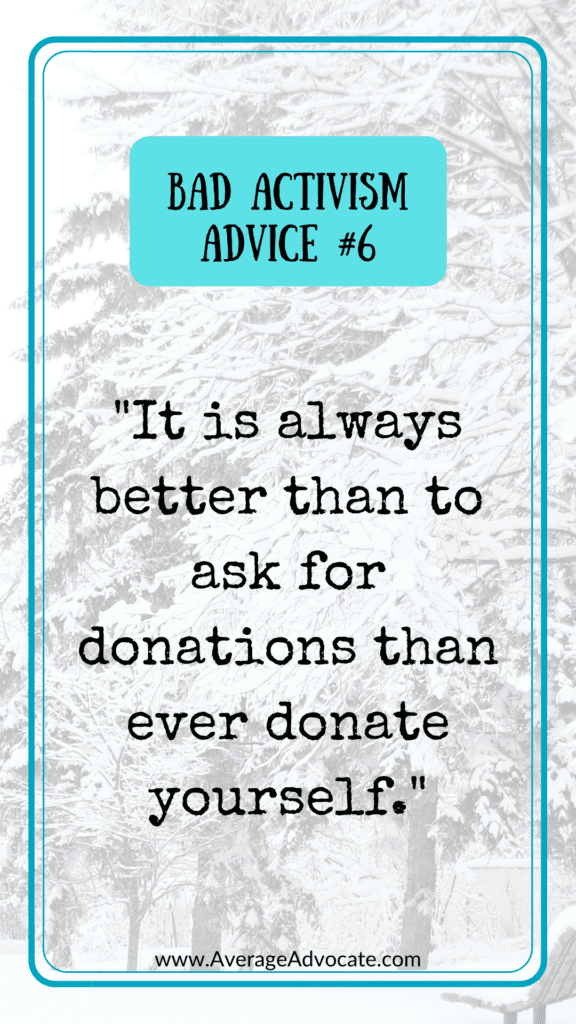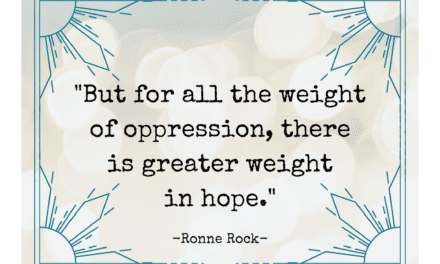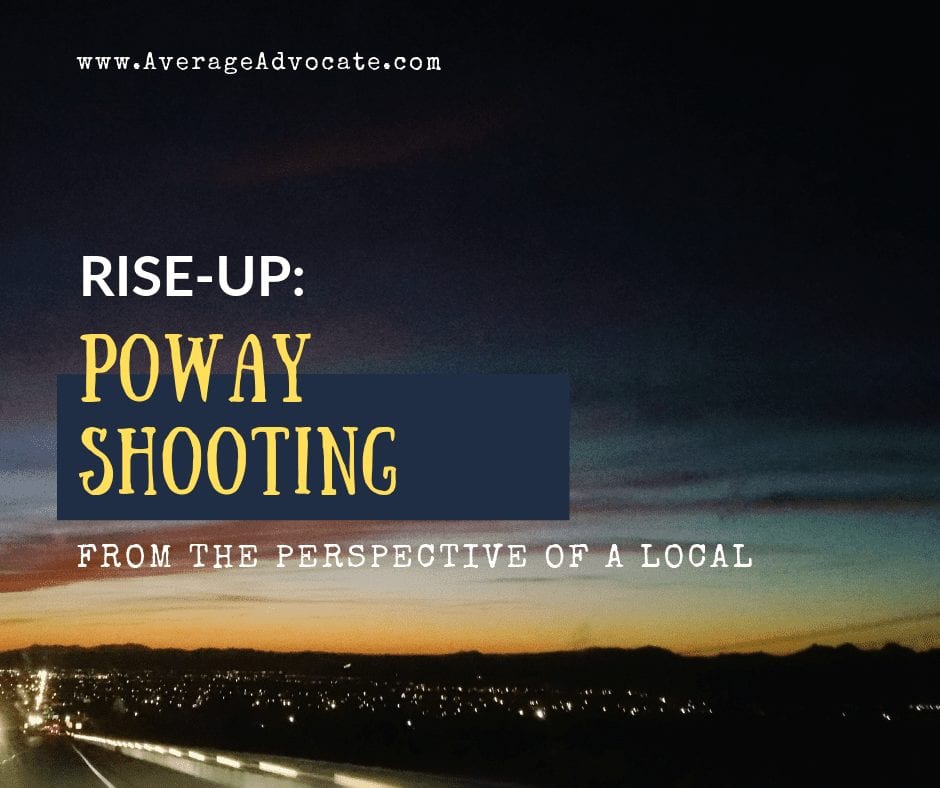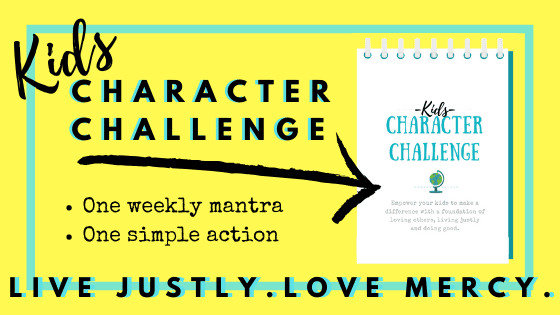Occasionally, the best way to learn how to do something well is by learning what not to do. I empower people to be good advocates for social change, but these days I am seeing a lot of bad activism. Here are things not to say if you want your advocacy and activism to be better-received.
Bad Advocates Ignore Being Rubbed the Wrong Way
Before I begin with what not to say, I want to give you one caution. It is likely that a few (if not more) of these statements might make you feel upset or confused. This is actually a good thing. Perceive it as your invitation to do the following:
1.) Consider the concept addressed in the statement, by asking what it means and why someone well-trained in activism is saying it. You are welcome to disregard it, however, as this post teaches you how to not be a bad advocate for social change, I challenge you to understand and examine what you believe about the concept.
2.) Look at your reaction to the statement in greater depth. This will help you become a better advocate overall. Mature advocates do not thrive on reactions and angry activism. Rather, they know what they believe and are advocating from a space of healing/wholeness. Discovering your “triggers” gives you a chance to continue healing. In addition, they also empower you to practice the discipline of wise responses.
Bad Inspirational Advice
To make these more memorable, I decided to write these out as if they are inspirational quotes or ancient proverbs. Just very bad ones. Imagine them overlayed on a generic istock photo, hanging above a desk. Your lifehack is to never listen to their guidance.
- Raise your voice loudly for the “voiceless” because they don’t need your mic passed to them.
- Always remember, nonprofits matter more than people.
- Believe in yourself. You have better ideas than the people you’re serving.
- Turn up the nastiness of your angry voice to join it with the outraged masses for change.
- Don’t be dismayed, for you can always force people to listen.
- Burnout is a myth. Caring for the world comes first.
- Allyship is allysh*t.
- You alone can rescue those unfortunate impoverished children far away.
- Survivor voices don’t matter.
- You are the savior.
- It is always better to ask for donations than to give from your own wallet.
- Never rest until the revolution is over.
- Always remind yourself that your actions don’t matter, for you are just one person.
- Use your power to change the world to your own personal, subjective brand of justice.
- If you want to make a difference, grow cynical.
- Rise up. Resist. Give up.
- The best way to make a difference by hiding at home.
- Be a peacemaker: avoid conflict.
- Resist all authority. Never work with the system.
- The best way to make a difference is by never sleeping.
- Check a volunteer box and you will be good.
- The best way to change the world is by never starting.
- Always call out privilege through blanket condemnation statements.
- You can’t make a difference.
- Your kids matter more than the kids of other’s.
- The oppressed can take care of themselves.
- Anger changes the world.
These aren’t the only things not to say if you want your advocacy and activism to be better-received. However, this life-hack will save you a lot of unnecessary set backs and pain as you advocate for good.
If you are unsure how to become a good advocate for social good, the Five Phases of Rising Up is a great tool to start with. It might help you be the world changer you want to be.


